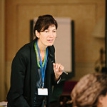
Inclusion
Cities are the ultimate expression of shared space. Open and tolerant, the optimum European city model is built on social justice and economic opportunity. These attractive features partly explain why more than 70% of Europe’s population is now urban. The cohesive city challenge will be to secure economic growth without widening inequalities and to find new and creative ways to design and deliver publicly funded services.
The cohesive European city model faces significant challenges in the 21st Century. The Global Financial Crisis has provoked large job losses, particularly affecting the young, across much of the EU. It has also accelerated inequalities and given rise to the concept of the Precariat, without security and social protection. Europe’s changing demography also challenges the cohesive city model. As the proportion of older people rises, pressure is placed on struggling public services, and the scourge of isolation is a growing threat. The provision of affordable housing goes alongside this, as our living patterns change. Another demographic factor is Europe’s growing diversity. Evidence suggests that this is an asset, but it is also a challenge, particularly when jobs are scarce. In parts of Europe where the Crisis has been most acute, minorities have been scapegoated by xenophobes for political advantage. This has tapped into the loss of trust felt by many citizens as politicians have failed to prevent economies going close to the edge.
Related URBACT networks
Volunteering Cities +
ActiveCitizens
ROOF
USE-IT
Useful links
Article
Culture and inclusion: URBACT cities contribute to the EU Urban Agenda
Article
Cities are shaping the future of gender equality
Article
URBACT networks and the ‘Just Transition’
Article
Nine ways cities can become more just and inclusive
Article










